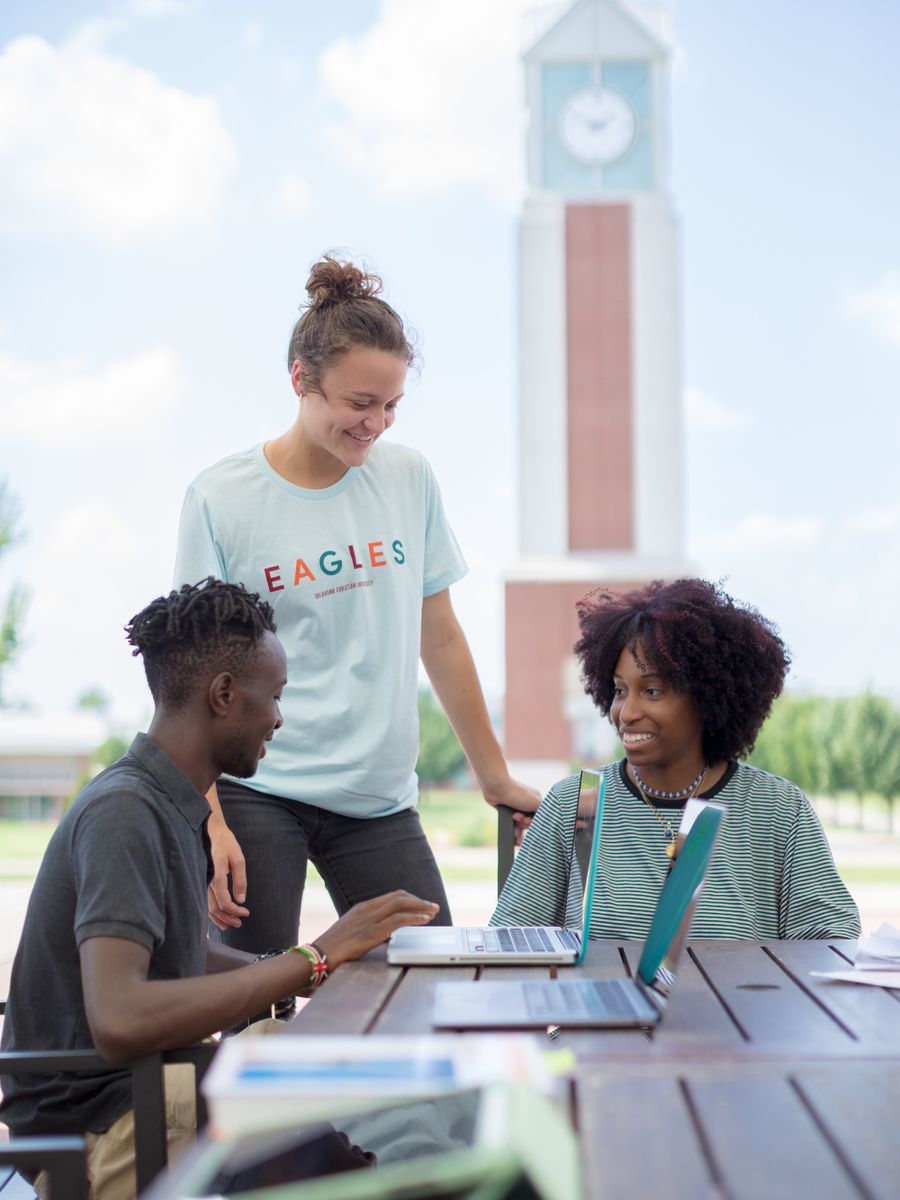Assistance is tailored to the needs of the individual student. Services will be designed in a manner intended to remove barriers which hinder learning and which allow maximum independence. Reasonable accommodations are based on specific disability-related needs. Services are intended to provide equal access and equal opportunity.
The Americans with Disabilities Act does not require colleges to provide personal assistants, individual personal tutors, or personal assistive technology. Whenever possible, the Office of Disability Support Services will refer students to agencies which may provide personal assistance of that nature. Accommodations are not made which reduce academic expectations, standards, or which would eliminate essential components of any course.
To aid students in securing appropriate services, DSS provides instructors with written verification of a student’s disability and recommendations for academic accommodations. Students must also identify themselves to the instructor(s) for implementation of the identified classroom accommodations.
Students may arrange for note taking assistance by securing a volunteer note taker or by tape recording lectures. Working with Disability Support Services to obtain copies of instructors’ lecture notes, as available, is also an alternative.
If the volunteer note taking option is selected, it is the student’s responsibility to contact Disability Support Services to request assistance with note taking. This request, accompanied by a student's class schedule, must be given to DSS three weeks prior to the beginning of classes. A letter will be sent to the student’s instructors requesting an in-class volunteer note taker solicitation. It is then the student’s responsibility to obtain the volunteer’s name and number from the instructor. Disability Support Services will pay for the expenses of making copies of the notes. Students should attempt to take his or her own notes. The Volunteer note taker Program is not intended to replace class attendance and class attendance requirements will be enforced unless specifically authorized in writing by the Disability Support Services’ office and the class professor.
If the tape recording option is selected and the student does not have a tape recorder, the student with disabilities may check out a tape recorder and tapes from Disability Support Services. The student is responsible for the return of tape recorders and tapes at the conclusion of each semester, or he/she will be billed for the cost of the equipment.
Students with disabilities may request modifications in course examination requirements or formats. Authorized testing accommodations are designed to assist students in demonstrating their skills or acquired knowledge rather than the impact of their disabilities.
The following steps have been established for students and instructors to initiate alternative testing. Students seeking testing accommodations are responsible for speaking with their instructors regarding their requests far in advance of scheduled examinations, preferably at the beginning of the semester. Students must also request appropriate services from Disability Support Services on a timely basis. The Coordinator of Disability Support Services will notify the student’s instructor(s) of recommended testing procedures. Consultation among the student, his/her instructor(s), and the Coordinator of Disability Support Services may be necessary before some testing accommodations are authorized.
Alternative Format Test Materials
Disability Support Services provides assistance to students in obtaining required texts in alternative (i.e., recorded, large print, braille) formats. If a student is eligible to obtain recorded textbooks and equipment, Disability Support Services will assist the student in processing the application(s) to Recordings for the Blind and Dyslexic (RFB&D) and/or Oklahoma Library for the Blind, if necessary. DSS will work with students to order books on tape through the student’s own membership. Students need to identify the required texts as soon as possible to begin this process. Early identification and requests are important in order to ensure timely receipt of materials.
Students with disabilities may request assistance in obtaining text materials in a large print or braille format if this is determined to be the most effective reasonable accommodation. Disability Support Services will provide large print or braille copies of required text materials.
Freelance interpreters are utilized to provide interpreter services. Students using interpreters must notify DSS (405.425.5907) as soon as possible of interpreter needs. If a class will be missed, at least 24-hours advance notice is expected. A “no show” or notice less than 24 hours will be counted as a “miss.” Three misses will result in suspension of services until the student meets with the Coordinator.
If a student with a disability enrolls in a course that is scheduled in an inaccessible location, the student should notify Disability Support Services to obtain a change in classroom location.
Emergency Evacuation Procedures
To ensure personal safety in emergency situations, the following guidelines should be observed by students with disabilities. In advance of emergency situations, be aware of at least two exit possibilities for each location. Notify instructors and/or classmates of the type of assistance you need during an emergency situation.
In the event of a fire, immediate and complete evacuations are preferred if it can be accomplished in a safe manner. If immediate and complete evacuation is not possible, ask someone to assist you to a “safe area,” such as an enclosed stairwell, until emergency personnel arrive and complete evacuation. The assisting individual should stay with you until emergency personnel arrive. In addition, you should ask a second person to immediately notify emergency personnel of your location and the type of assistance required.
In the event of a tornado warning, you should utilize elevators and proceed to the lowest floor of the building. Request assistance from instructors or classmates if assistance is needed. If elevator use is not possible, then fire evacuation procedures (above) should be followed. Once you have reached the lowest possible floor, remain in the corridors away from windows and exterior doors.

